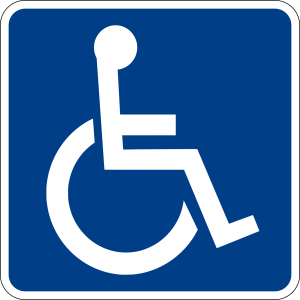A warehouse worker who slips and falls while mopping the floors could be eligible for worker’s compensation. The drug store employee who injures herself while moving merchandise boxes to the appropriate aisle could also be a candidate for worker’s compensation. A businessman who falls down the hotel lobby stairs while on a business trip could also receive worker’s compensation benefits.
What is Worker’s Compensation?
Worker’s compensation protects employees from the financial consequences of workplace injuries. This insurance program covers the employee regardless of who is at fault, whether a colleague, customer, or employer. Limits do apply to receiving worker’s compensation benefits, however.
All of the following factors will determine whether or not one is eligible for worker’s compensation benefits:

The following factors will determine whether you are eligible for worker’s compensation
1. Employee Status
2. Injured on the Job
3. Commutes
4. Reporting Timeframe
5. Employer Coverage
6. Exceptions
1. Employee Status
An individual must be an employee to be eligible for worker’s compensation. Volunteers, for instance, provide services on a volunteer basis and are not candidates for benefits. Exceptions do exist, however. Volunteer firefighters are sometimes covered by some states’ worker’s compensation programs.
Independent contractors and consultants are not typically eligible for worker’s compensation benefits. Still, the rules vary state by state, and those who signed a 1099 tax form will likely go to court to resolve any disputes.
2. Injured on the Job
To be eligible for worker’s compensation, the employee must have been injured while engaging in work-related activities. The fine line between work-related and non-work-related situations can be illustrated with the following examples:
An employee takes a lunch break and is injured in the cafeteria after slipping on spilled food. This individual is likely to receive worker’s compensation benefits because the injury occurred during work hours and on the company’s premises.
However, an employee who takes a lunch break at the local deli and twists his ankle while at the deli is not eligible for worker’s compensation benefits. This individual’s injury did not occur on workplace premises and is not a work-related incident. However, this employee could receive worker’s compensation benefits if he picked up lunch for his boss from the deli and the injury occurred at the time.
3. Commutes
Commutes to and from work are not considered time on the job and do not entitle an employee to worker’s compensation benefits if injuries occur. However, exceptions to this rule do allow some employees to receive benefits. For instance, an individual driving a company vehicle, an employee running errands for the employer or someone who regularly travels for work can be eligible for worker’s compensation benefits.
4. Reporting Timeframe
Employees who have been injured as a result of work-related activities must report the injury within a specified timeframe, which differs from state to state, in order to be eligible for worker’s compensation. Typically, most states have a 10 to 90-day time period for employees to make a written report for their employer. Once the employer is made aware of the employee’s injury, the employee typically has one to three years to file a worker’s compensation claim.
Different states may allow more time to file a claim. Some states also extend the time limit for filing claims if the individual is unable to file a claim immediately due to such scenarios as falling into a coma, prolonged treatment of the injury (such as burns), or being quarantined due to a contagious condition.
Those with mild work-related injuries should not hesitate to file a claim, since injuries can get worse over time. A claim will simply close in the event that a work-related back condition heals on its own. However, waiting to file a claim for a back injury that grows increasingly severe could lead to becoming ineligible for worker’s compensation benefits.
5. Employer Coverage
The vast majority of employers provide worker’s compensation coverage. While state laws differ, worker’s compensation coverage is usually dependent on the number of employees an employer has, the nature of the business and the type of work employees engage in. Most state laws require an employer to have coverage if they have at least one employee; other states require two to five employees.
Employees of the federal government are protected with a unique federal worker’s compensation system. Federal workers are guided by federal worker’s compensation benefit systems rather than state systems.
6. Exceptions
Domestic workers, such as housekeepers or nannies, are typically not covered by many states’ worker’s compensation programs. Other states exclude these professions if the employees are part time.
Temporary workers, or those hired by staffing agencies, are also covered by worker’s compensation so long as any injury sustained occurred while on the job. The primary challenge in temp workers’ claims is determining who is responsible for the coverage, the temp agency or the company to which the employee was sent to perform work.
Seasonal workers may also be excluded from some states’ worker’s compensation programs. Most states do, however, cover immigrant workers who lack the legal status to work.
Work with an Attorney
As the victim of injury while on the job, your medical bills, lost wages, and time off work are likely to cost you and your family valuable time and expense. You’ll benefit from seeking the services of a worker’s compensation attorney who will handle your case with professionalism and ensure you receive proper compensation. The attorney will discuss with you what is considered eligible under your state’s worker’s compensation laws and find out if your injuries make you eligible for benefits.
In Illinois, workers who have sustained injuries on the job have a two year time limit to file a worker’s compensation claim. When you are ready to discuss your claim, contact Oak Lawn’s most trusted personal injury lawyers. The Berry K. Tucker & Associates, Ltd. legal team is experienced in all facets of personal injury law. Our lawyers’ wealth of experience includes birth injuries, bicycle accidents, car accidents, medical malpractice and wrongful death.
The dedicated team of personal injury lawyers at Berry K. Tucker & Associates, Ltd. will review your case, work with your insurance company, inform you of your legal options and fight for maximum compensation. We also offer an initial consultation to help you get started on resolving your worker’s compensation claim quickly.










